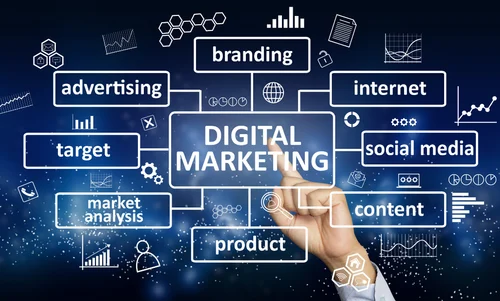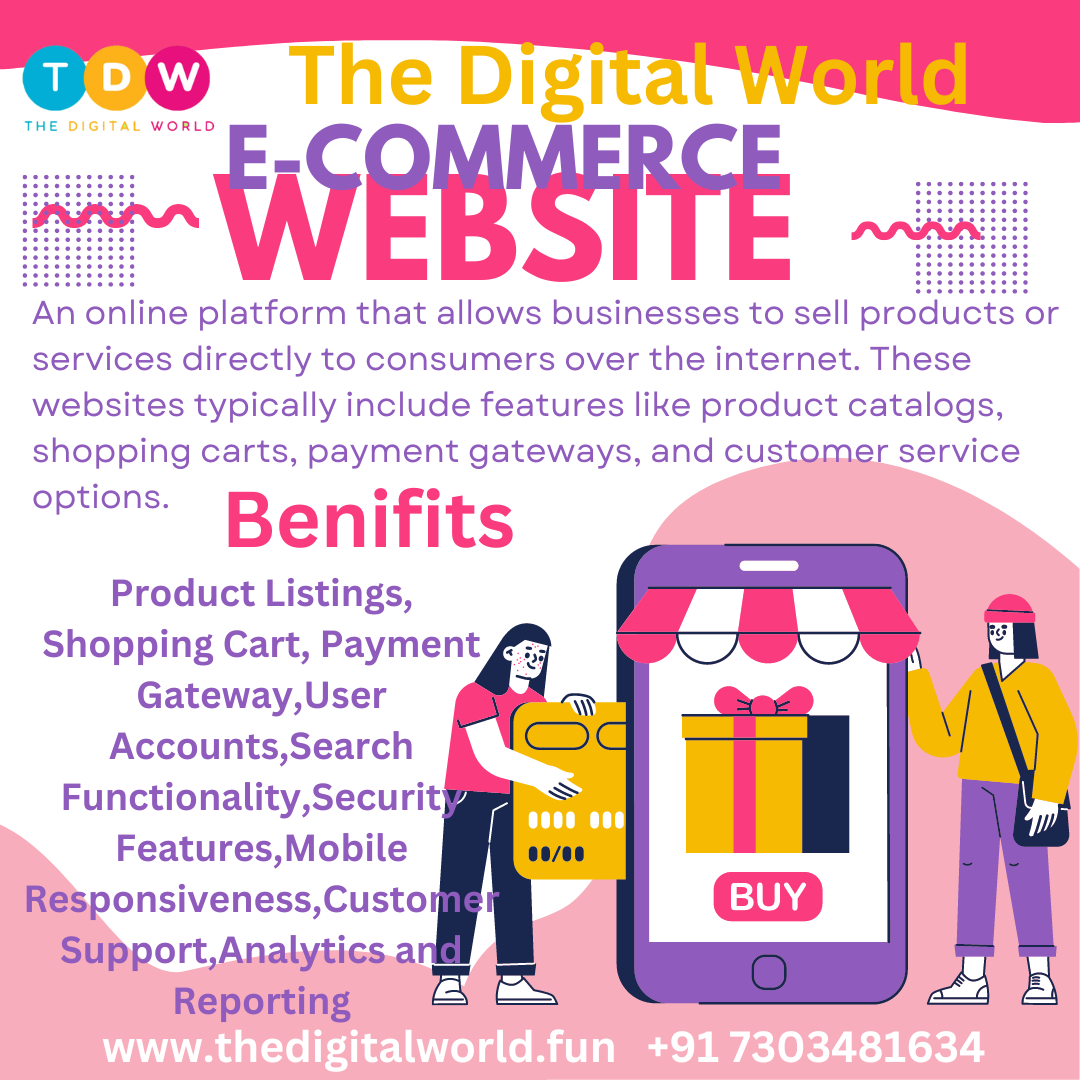Importance of a Website
Website is valuable in the Modern Era
In these digital ages, a website is no longer a luxury—it’s a necessity. Whether you’re a business owner, a freelancer, an artist, a blogger, or even a nonprofit organization, having a professional and functional website can significantly impact your success. As the internet continues to dominate how we communicate, shop, learn, and do business, the importance of having a strong online presence cannot be overstated. At the core of this online presence lies your website.
1. First Impressions Matter
Your website is the first interaction people have with your brand or business. It is your digital storefront. When users land on your website, they form an impression about your credibility, quality, and professionalism within seconds. A well-designed, modern, and user-friendly website instantly builds trust and encourages visitors to explore further.
On the other hand, a poorly designed or outdated website may drive potential customers away. People tend to associate the quality of a website with the quality of the business. Therefore, having a professional website is crucial to making a positive first impression.
2. Round-the-Clock Accessibility
A website is available 24/7. This means customers can visit your website any time and access your information, services, or products anywhere ,anytime. This convenience is especially important in a global market where customers may be located in different time zones.
By being available round the clock, your website serves as a constant source of information and interaction. It also allows customers to contact you, make purchases, or inquire about your services at their convenience.

3. Builds Credibility and Trust
credibility is everything in a competitive market. A well-designed website shows that you are serious about your business or cause. It provides a platform to showcase your qualifications, testimonials, reviews, and case studies—helping to establish authority in your niche.
Today’s consumers are more likely to trust a business with an online presence. If someone searches for your business online and finds no website, they may question your legitimacy. On the contrary, a website filled with useful content, clear contact details, and a professional look can instill confidence in your audience.
4. Cost-Effective Marketing Tool
Traditional forms of advertising—like print ads, billboards, or TV commercials—can be expensive and often out of reach for small businesses or startups. A website, in itself, offers a cost-effective platform for marketing your products and services.
With SEO (Search Engine Optimization), social media integration, content marketing, and email campaigns, your website can attract a steady stream of targeted visitors. Unlike one-time advertisements, a well-optimized website continues to attract traffic long after initial efforts have been made.

5. Increases Visibility
Billions of people use the internet every day to find answers, buy products, or hire services. Without a website, you’re missing out on a huge audience. Whether you’re a small local business or a global brand, your website makes it easier for people to find you online.
Moreover, integrating your website with tools like Google Maps, search engines, and local listings ensures that nearby customers can discover you when searching for related services. This increased visibility translates into more opportunities for growth and success.
6. Central Hub for Your Digital Presence
Think of your website as the central hub of all your online activity. While you might use social media platforms like Facebook, Instagram, or LinkedIn to reach out to people, all those efforts should ideally lead back to your website.
Your website contains all the detailed information that users need—about your products, services, pricing, mission, blog posts, and more. It allows you to control your message completely, unlike social media platforms where algorithms and rules frequently change.

7. Facilitates E-Commerce and Online Sales
For businesses selling products or services, a website is the perfect platform to offer e-commerce capabilities. With online payment systems, inventory management, and customer service features, your website can function as a full-fledged sales tool.
Even for businesses that don’t directly sell online, a website can generate leads and drive foot traffic to a physical location. Features like contact forms, booking systems, and quote requests make it easy to convert visitors into paying customers.
8. Showcases Your Work or Portfolio
A website offers the perfect space to showcase your work. Whether you’re a photographer, designer, writer, developer, or contractor, an online portfolio helps potential clients see the quality of your work.
This digital gallery builds trust and inspires confidence. Clients often make decisions based on the projects you’ve completed or the results you’ve delivered. By presenting your best work online, you make it easier for clients to choose you over competitors.

9. Enhances Customer Service
Your website can serve as a powerful customer service tool. With FAQs, live chat options, downloadable guides, and informative blog posts, you can assist customers without requiring constant direct contact.
This not only reduces the burden on your support team but also improves user experience. When visitors can easily find answers to their questions, they are more likely to stay engaged and satisfied.
10. Data Collection and Analysis
Websites offer valuable insights into your audience. Using tools like Google Analytics, you can track how visitors are finding you, what pages they visit, how long they stay, and what content resonates with them.
This data can help you make informed decisions—such as optimizing high-traffic pages, improving underperforming ones, or tailoring your marketing strategies to meet user preferences. Understanding your audience helps you serve them better.

11. Competitive Advantage
In a crowded marketplace, standing out is key. A well-optimized, visually appealing, and informative website gives you an edge over competitors who may not have an online presence or whose websites are lacking.
Your website is your chance to tell your story, highlight your unique selling points, and demonstrate why people should choose you. In many cases, it can be the deciding factor between a potential customer choosing your business over another.
12. Supports Branding and Identity
Your website is an extension of your brand. Through consistent use of logos, colors, typography, and voice, you can reinforce your brand identity. This consistency helps build recognition and trust over time.
By telling your brand story and sharing your values, mission, and personality, your website can create emotional connections with your audience—leading to stronger loyalty and long-term relationships.
Conclusion
The importance of a website cannot be overstated. It is a foundational element of your online presence, a platform for communication, marketing, commerce, and customer engagement. Whether you’re running a business, offering a service, or simply sharing your passion with the world, a website is your most powerful digital asset.
In today’s competitive and fast-paced world, not having a website means missing out on countless opportunities to grow, connect, and succeed. A website isn’t just important—it’s essential.